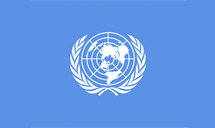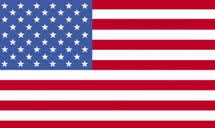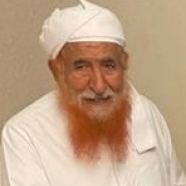Overview
Yemen national Abd al-Majeed al-Zindani is a U.S.- and U.N.-designated recruiter and fundraiser for al-Qaeda and a reported “one-time mentor of Osama bin Laden,” according to the New York Times. Laura Kasinof and Scott Shane, “Radical Cleric Demands Ouster of Yemen Leader,” New York Times, March 1, 2011, http://www.nytimes.com/2011/03/02/world/middleeast/02yemen.html. The U.S. Treasury accuses al-Zindani of actively recruiting for al-Qaeda training camps and playing a “key role” in purchasing weapons for the terror group.“United States Designates bin Laden Loyalist,” U.S. Department of the Treasury, February 24, 2004, http://www.treasury.gov/press-center/press-releases/Pages/js1190.aspx. The U.S. also accuses him of financially supporting Hamas.“Union of Good,” U.S. Department of the Treasury, November 12, 2008, http://www.treasury.gov/resource-center/terrorist-illicit-finance/Pages/protecting-union-of-good.aspx. He reportedly operated out of Yemen and then fled to Saudi Arabia.Margaret Coker, “Yemeni Sheik Courts, Warns Foreign Governments,” Wall Street Journal, January 12, 2010, http://www.wsj.com/articles/SB126321683002124521; “Turkey Seen Planning More Active Role in War-Ravaged Yemen,” Arab Weekly, November 24, 2020, https://thearabweekly.com/turkey-seen-planning-more-active-role-war-ravaged-yemen. After a period of house arrest in Saudi Arabia, al-Zindani is currently believed to live in Istanbul, Turkey.“Turkey Seen Planning More Active Role in War-Ravaged Yemen,” Arab Weekly, November 24, 2020, https://thearabweekly.com/turkey-seen-planning-more-active-role-war-ravaged-yemen.
In the 1970s, al-Zindani was one of the clerics who founded a number of schools, called “scientific institutes,” mimicking the madrassas school system in Afghanistan and Pakistan. Through an ascetic Wahhabi-Salafist curriculum, the school aimed to counter the wave of secularism coming from the socialist-run South Yemen. Many students traveled to Afghanistan to fight against Soviet forces during the 1980s.“Yemen: The Tribal Islamists,” Wilson Center, August 27, 2015, https://www.wilsoncenter.org/article/yemen-the-tribal-islamists.
Al-Zindani also has strong ties to Islamist politics in Yemen. Following the 1990 merger of North and South Yemen, al-Zindani co-founded the Islamist political party al-Islah (“Congregation for Reform”) with the support of then-President Ali Abdullah Saleh. The party’s platform “seeks reform of all aspects of life on the basis of Islamic principles and teachings.”“Yemen: The Tribal Islamists,” Wilson Center, August 27, 2015, https://www.wilsoncenter.org/article/yemen-the-tribal-islamists. Although the group denies connection to the international Muslim Brotherhood, there is a history of association.“Extremism and the Islah Party in Yemen,” European Eye on Radicalization, February 21, 2020, https://eeradicalization.com/extremism-and-the-islah-party-in-yemen/. While differing on some tenets, the Brotherhood joined the al-Islah coalition shortly after the party’s founding. In 1996, the Brotherhood won control of al-Islah’s General Secretariat when four Brotherhood members were elected to top positions. This resulted in the party’s unity fraying, with al-Zindani and the Brotherhood members on opposite sides of the 1999 presidential election.“Yemen: The Tribal Islamists,” Wilson Center, August 27, 2015, https://www.wilsoncenter.org/article/yemen-the-tribal-islamists.
Also in the early 1990s, al-Zindani founded al-Imam University in Sanaa.“Extremism and the Islah Party in Yemen,” European Eye on Radicalization, February 21, 2020, https://eeradicalization.com/extremism-and-the-islah-party-in-yemen/. Students of the university have repeatedly been involved in terrorism, including the killing of three American missionaries and the assassination of the Yemeni Socialist Party’s deputy leader, Jarallah Omar. The American jihadist John Walker Lindh also studied at al-Iman before joining the Taliban.“United States Designates bin Laden Loyalist,” U.S. Department of the Treasury, February 24, 2004, http://www.treasury.gov/press-center/press-releases/Pages/js1190.aspx.
According to the U.N., al-Zindani has provided “direct support to terrorism” and has directly influenced al-Qaeda leaders.“Security Council Committee pursuant to resolutions 1267 (1999) and 1989 (2011) concerning Al-Qaida and associated individuals and entities,” U.N. Security Council, accessed March 27, 2015, http://www.un.org/sc/committees/1267/individuals_associated_with_Al-Qaida.shtml. The red-bearded al-Zindani was at one point Osama bin Laden’s spiritual adviser“United States Designates bin Laden Loyalist,” U.S. Department of the Treasury, February 24, 2004, http://www.treasury.gov/press-center/press-releases/Pages/js1190.aspx. and was “one of the people closest” to bin Laden, according to bin Laden biographer Yossef Bodansky.Daniel Golden, “Western Scholars Play Key Role In Touting ‘Science’ of the Quran,” Wall Street Journal, January 23, 2002, http://www.wsj.com/articles/SB1011738146332966760. During the trials of the perpetrators of the 2000 USS Cole bombing, several mentioned that they “acted under a fatwa (religious edict) from al-Zindani.”“Extremism and the Islah Party in Yemen,” European Eye on Radicalization, February 21, 2020, https://eeradicalization.com/extremism-and-the-islah-party-in-yemen/. In 2010, al-Zindani stated that he would call for jihad against the United States if American troops were sent to fight al-Qaeda in Yemen.Robert F. Worth, “Yemen: Clerics Oppose U.S. Troops,” New York Times, January 14, 2010, https://www.nytimes.com/2010/01/15/world/middleeast/15briefs-Yemen.html.
Al-Zindani subscribes to a conservative brand of Salafism that rejects Western influences and modern Islamic practices.Steven Erlanger, “At Yemen College, Scholarship and Jihadist Ideas,” New York Times, January 18, 2010, http://www.nytimes.com/2010/01/19/world/middleeast/19yemen.html. He is a vocal critic of the U.S. and blamed the 9/11 attacks on a Jewish conspiracy orchestrated by President George W. Bush.Josh Devon, “Yemeni Sheikh of Hate,” National Review, January 7, 2003, http://www.nationalreview.com/article/205426/yemeni-sheikh-hate-josh-devon. Al-Zindani reportedly believes in Bucailleism, a doctrine that alleges that the Big Bang theory and other scientific concepts originated in the Quran.Daniel Golden, “Western Scholars Play Key Role In Touting ‘Science’ of the Quran,” Wall Street Journal, January 23, 2002, http://www.wsj.com/articles/SB1011738146332966760. Al-Zindani claims he has developed cures for AIDS and heart disease, and believes that the U.S. designated him a terrorist because his AIDS cure would hurt pharmaceutical companies’ profits.Jane Ferguson, “Firebrand cleric walks a fine line in Yemen,” Al Jazeera, September 22, 2012, http://www.aljazeera.com/indepth/features/2012/09/2012921135824704254.html.
After the Iranian-allied Houthi rebels seized much of Yemen in late 2014 and early 2015, they targeted members and institutions of al-Islah.Stacey Philbrick Yadav, “Yemen’s Muslim Brotherhood and the Perils of Powersharing,” Brookings Project on U.S. Relations with the Muslim World, August 2015, https://www.brookings.edu/wp-content/uploads/2016/07/Yemen_Yadav_FINALv.pdf, 9. In September 2015, al-Zidani reportedly fled the Houthis and left Yemen for Saudi Arabia. Saudi authorities refused to “grant him residence conditions worthy of his status,” and placed al-Zindani under house arrest upon his arrival.“Turkey Seen Planning More Active Role in War-Ravaged Yemen,” Arab Weekly, November 24, 2020, https://thearabweekly.com/turkey-seen-planning-more-active-role-war-ravaged-yemen. The restrictions allowed him only to travel between Mecca and Riyadh and prevented him from visiting other cities or leaving the country. He was also forbidden from holding media meetings or hosting guests.“Yemeni Source: Zindani Under House Arrest in Saudi Arabia,” Middle East Monitor, October 17, 2017, https://www.middleeastmonitor.com/20171017-yemeni-source-zindani-under-house-arrest-in-saudi-arabia/.
In November 2020, al-Zindani reportedly moved to Turkey. Al-Zindani’s importance within al-Islah and his leadership in the Brotherhood-backed Yemeni Scholars Association has allowed the organization to claim his departure as a “political victory” on social media.“Turkey Seen Planning More Active Role in War-Ravaged Yemen,” Arab Weekly, November 24, 2020, https://thearabweekly.com/turkey-seen-planning-more-active-role-war-ravaged-yemen. He continued to reside in Istanbul as of October 2022, when he hosted a meeting with Taliban spokesman Zabiullah Mujahid.سلان السليماني ALSulimany, Twitter post, October 22, 2022, 1:31 p.m., https://twitter.com/Ars_ALSulimany/status/1583873756912848898.
Associated Groups
- Extremist entity
- Al-Qaeda
- Read Threat Report
- Type(s) of Organization:
- Non-state actor, religious, terrorist, transnational, violent
- Ideologies and Affiliations:
- Jihadist, pan-Islamist, Qutbist, Salafist, Sunni, takfiri
- Position(s):
- Fundraiser, recruiter
Al-Qaeda’s 9/11 attacks was the deadliest ever on American soil, killing nearly 3,000 people. Since the fall of the Taliban, al-Qaeda has established operations worldwide, including in Syria, the Gulf, North Africa, West Africa, East Africa, and the Indian subcontinent.
History
United Nations
 February 27, 2004
February 27, 2004The U.N. Security Council designated “Abd-Al-Majid Aziz Al-Zindani” as an individual associated with al-Qaeda on February 27, 2004.“ABD-AL-MAJID AZIZ AL-ZINDANI,” U.N. Security Council, accessed December 16, 2022, https://www.un.org/securitycouncil/sanctions/1267/aq_sanctions_list/summaries/individual/abd-al-majid-aziz-al-zindani.
United States
 February 24, 2004
February 24, 2004The Department of the Treasury designated “Shaykh Abd-al-Majid al-Zindani” as a Specially Designated Global Terrorist (SDGT) on February 24, 2004.“United States Designates bin Laden Loyalist,” U.S. Department of the Treasury, February 24, 2004, http://www.treasury.gov/press-center/press-releases/Pages/js1190.aspx.
Daily Dose
Extremists: Their Words. Their Actions.
Fact:
On May 8, 2019, Taliban insurgents detonated an explosive-laden vehicle and then broke into American NGO Counterpart International’s offices in Kabul. At least seven people were killed and 24 were injured.
